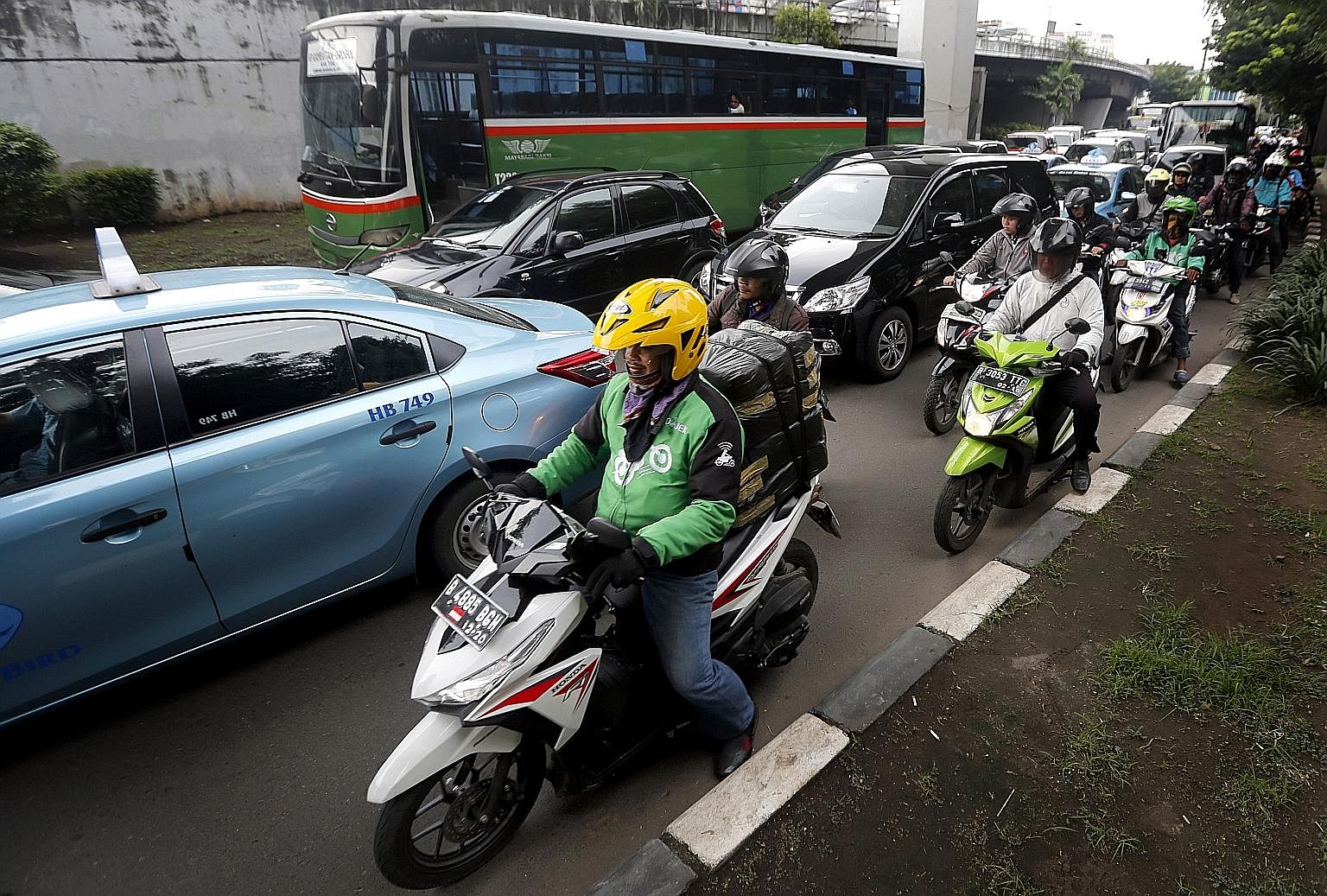Having been schooled in China, Uber Technologies looks set to be taught another lesson in Asia.
Go-Jek, an Indonesian transport and logistics start-up, has a few new tricks to teach the old dog. Its service Go-Pay was born out of a need to bridge the gap between consumers who prefer to pay with cash, and Go-Jek's mobile app, which accepts only digital payments.
Now Go-Pay, which is integrated into the main app, accounts for more than half of all transactions, Bloomberg News' Yoolim Lee reported yesterday. Go-Pay is so cool that users can even give cash over and above the amount payable to a driver, who will then credit the balance to that customer's account for the next time - no bank details or credit cards necessary.
In the same story, Ms Lee quotes Uber's regional chief as saying the San Francisco-based ride-hailing company has no plans for its own payments service, preferring to instead rely on outside providers.
"There is no specific plan for Uber Wallet right now," according to Mr Andrew Macdonald, Uber's manager for Latin America and Asia-Pacific. That is a mistake.
Companies that limit themselves to single-service offerings are doomed to struggle.
Exhibit A: Twitter.

I do not consider Uber Eats to be a separate service, but a different flavour of the same product, and the fact that Uber is still burning cash despite being the dominant provider in most markets in which it operates shows the fragility of the business model. Which brings us back to Go-Jek and Go-Pay.
For sure, the Indonesian unicorn is entering a crowded and competitive market where Grab Taxi, Lippo Group and Ascend Money are vying for the same mobile payments business.
I am not even convinced that Go-Pay will be the leading player, but it does not have to be.
All Go-Pay has to do is make life easier for Go-Jek customers and service providers and not lose money. (Easier said than done.)
That convenience alone, if well executed, should be sufficient to make the combined business sticky enough to keep momentum.
Add another service - accommodation or B2B e-commerce, for example - and Go-Jek moves from being a service provider to a platform provider.
With users' smartphone attention and home-screen real estate at a premium, a suite of services is likely to win out over just one. Exhibit B: China.
Uber's laser focus on being the leader in one specific business has allowed it to become just that. But Go-Jek is showing its larger rival that transport is only one battle in a much longer and more brutal war.
• This column does not necessarily reflect the opinion of Bloomberg LP and its owners.
